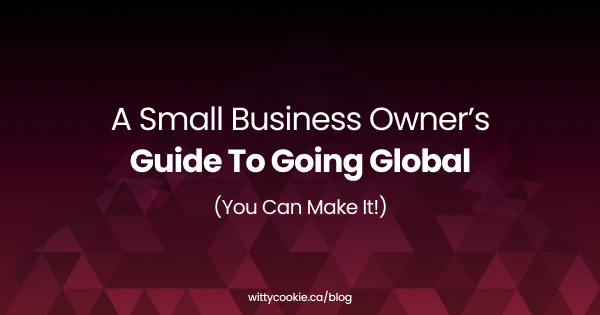4 Reasons Your Website Needs a Blog
If you’re a small company on a budget, then you’ll probably have one of two responses to people saying you should start a blog. The first is, ‘I doubt it’s worth the effort’. The second, ‘sure, it’s probably a good idea. It’s on my list. Somewhere near the bottom.’ Which might sound more positive than the former, but really means the same thing. You’re not going to be starting a blog soon.
That’s a mistake. A blog is an incredibly cost-effective strategy to achieve a wide range of goals all at the same time. Here we’ll explore those are:
Social media
If you want to build a social media presence then you need to have something to share. To do that, you can, of course, curate other people’s content. The problem with that strategy, however, is that you’re then sending people off to other people’s content and not to your own page.
If you create your own content, on the other hand, then you can use that to build an audience on social media and then regularly send that to your own website. Even better, if the content is interesting enough, then it can spread out from that initial audience and make far more people aware of your brand.
Search Engine Optimization
A big advantage of having a blog is that they create new content for your website. That, in turn, means that the Google bots have something to sink their teeth into. Even better, if you stick to your niche and write about content that is relevant for your customers, then this will serve to define your website, which will make it far more likely that you’ll rank for the words associated with your brand.
You can sometimes position yourself for words that your main site would not necessarily be associated with and pull in traffic in that way.
For example, the Essay Supply writing service posts valuable content about how to write a reaction paper. This draws search traffic specifically related to reaction paper search terms, like those shown below, but would not necessarily arrive at their website through the site’s standard landing pages. These then offer an additional source of potential customers.


 Another way that blog articles can be advantageous is that they can help in term of those long-tail keywords. In case you’re not familiar with those, those are the search terms that consist of more than one word.
Another way that blog articles can be advantageous is that they can help in term of those long-tail keywords. In case you’re not familiar with those, those are the search terms that consist of more than one word.
The advantage of long-tail keywords is that they often have less competition and that when people type them in they’re much further along in their search. For example, if I type ‘shoes’ into a search engine, I’m still in the research stage, while if I type a specific brand – say ‘where can I get Nike running shoes’ – then I’m ready to buy.
But don’t forget – SEO likes only valuable and well-optimized content.
Positions yourself as an expert
For many products, especially services, whether people think that yours is going to be up to scratch depends on whether they trust your abilities. Well-written blog content about the area that you’re specialized in can serve exactly that goal, by showing that you know what you’re talking about and that you know your field. If you don’t know what you’re talking about, and your writing doesn’t make any sense, then the likelihood of your clients understanding it will be out of the question. If you don’t have enough experience in writing blog posts, or you just want someone to reread it before you publish it, reading this “what is proofreading” article can help you to gain a better understanding of this area so you can ensure your posts are the best that you can make them.
Even better, if you can get a bit of traction, then it becomes entirely possible that other influencers in your field will talk about what you’ve written. When that happens, then it isn’t just your content speaking for you, but these people as well. That will give you more authority with your audience.
Of course, do be careful that you actually write for your customers. This might seem like an inane thing to say, but the truth is that quite often we end up writing blog articles for the people who we would like to impress (like the specialists in our own field) rather than the people who will buy our products (i.e. our customers).
Define your brand
Another powerful use of your blog is that it allows you to tell the story about your brand and what it stands for. You can explore the activism that you and your company engage in, for example. Other uses include introducing the people who work in your team. This can both serve to humanize your company as well as to make the people who work with you feel appreciated.
But that isn’t the whole of it. Often the very act of thinking up blog articles for your site will let you consider and reflect on new ideas. The blog can serve as a platform for you to evolve your business into something that more closely resembles the values that you’d like it to.
That’s an incredibly powerful thing, as obviously if you care deeply about what you’re doing and other people can see that then your enthusiasm can serve to infect others. When that happens, you’ll find yourself building up a following of people who respect you and your company for who you are and what you do. And that is a potent thing to have, particularly in this age where we expect the brands we buy to stand for something.
And all it takes is the creation of content
Okay, that’s not always exactly easy or cheap. If you’re not a writer then you’ll probably have to recruit someone who can do that for you. And it will take time to get that person onto the same speed. But then, that’s true of all marketing efforts. Getting your reputation out there always takes money and time.
And if you stick some of that effort into building up your blog, then you have content that stays out there, winning over people and drawing people to your content organically for years to come. Nothing else can do that as effectively. That’s why you need a blog.



